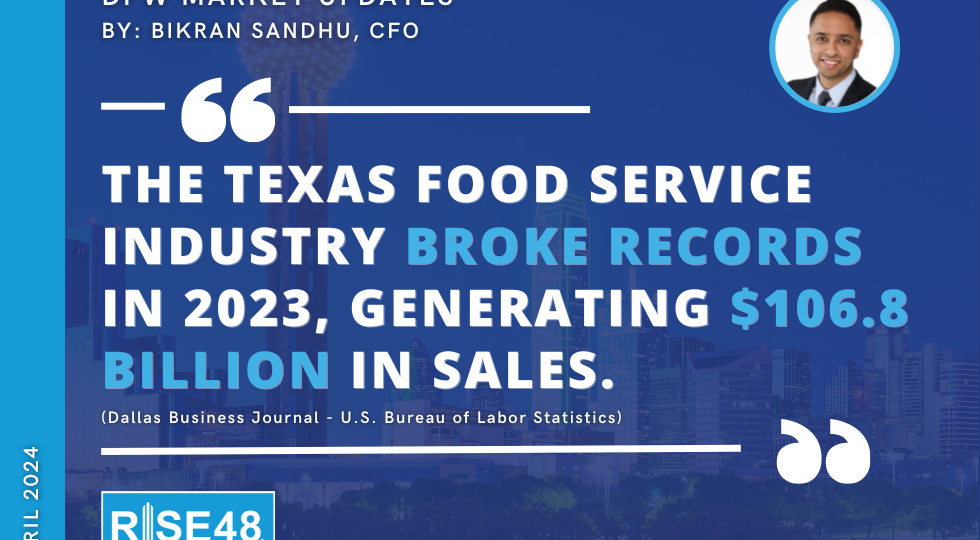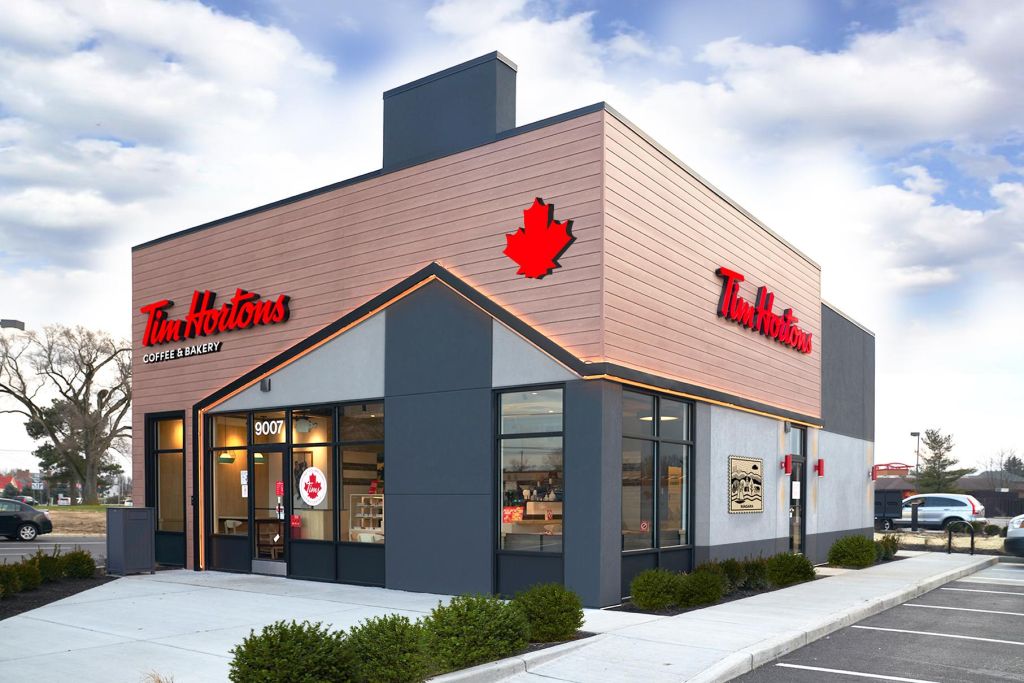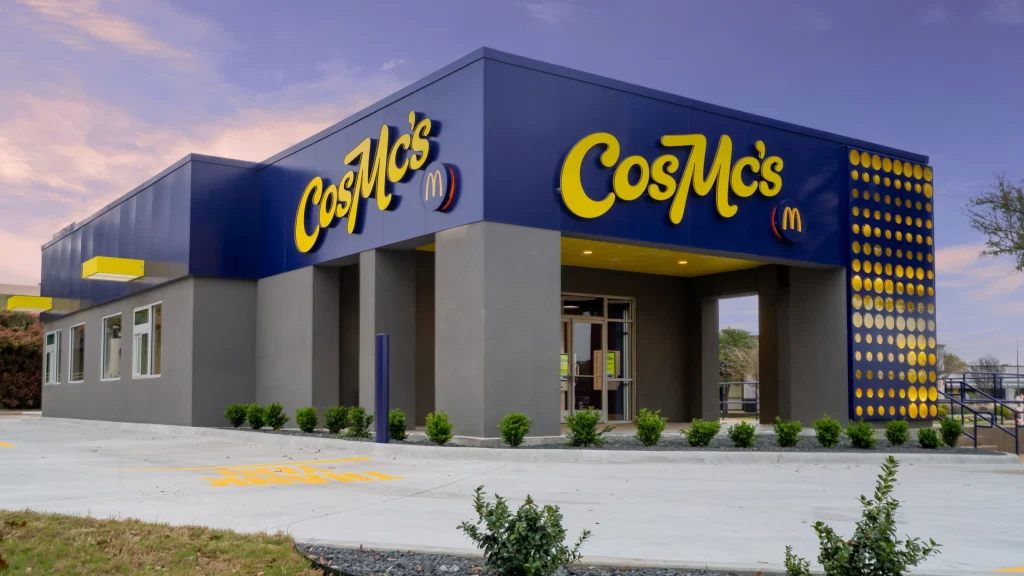
April Market Updates: Why The Dallas-Fort Worth Metroplex is Thriving
The Dallas-Fort Worth Metroplex is a dynamic and growing market, and April 2024 saw a continuation of this positive trend. This blog post will explore several factors contributing to the Metroplex’s success, including employment growth, population growth, and a robust business environment.
Tim Hortons Expansion Signals Growth in DFW
Canadian coffee chain Tim Hortons is expanding into the Dallas-Fort Worth area, with its first location planned in Saginaw, Tarrant County. Blazing Hospitality Inc. is developing an 8,000-plus-square-foot retail hub where Tim Hortons will occupy a 2,000-square-foot space complete with a drive-thru. This expansion into Texas reflects Tim Hortons’ broader goals, as the company aims to establish 50-60 locations across major Texas cities like Dallas-Fort Worth, Houston, and Austin within the next 5-7 years.

Tim Hortons’ expansion strategy includes careful site selection. They prioritize morning traffic demographics, the high consumption of quick-service restaurants in Texas, and the growing relocation of people familiar with their brand from the Northeast and Midwest. The Saginaw location is spearheaded by franchisees Ali and Emad Lakhany, who are integral in establishing North Texas and Houston Tim Hortons locations.
The Saginaw location was strategically chosen for its smaller market and limited competition. Firehouse Subs and Liquorland will also be tenants at the development, with some space remaining for a fourth business. The City of Saginaw provided grant funding to aid in the project, and Blazing Hospitality Inc., the real estate developer behind the project, has wide-ranging investments in Texas.
Sportech Solutions Brings Sports Tech Jobs to Arlington
Sportec Solutions AG, a German sports-technology company, has chosen Arlington, Texas, as the location for its new U.S. headquarters. The Arlington Economic Development Corp. played a role in securing the deal, approving a $1 million performance grant for the company. This new headquarters is expected to create 17 jobs averaging a $55,000 salary.
Sportec Solutions specializes in live data collection for soccer and provides video assistant referee (VAR) services for Major League Soccer (MLS). The Arlington headquarters will be a technology hub, offering live commentary tools, video refereeing support, and match data analysis. Christian Holzer, managing director at the company, emphasized their centrality to MLS’s development within the U.S. market.
The decision to locate in Arlington was influenced by its strategic position between coasts, providing a convenient time zone for international operations. Additionally, Arlington’s status as a major sports hub, with teams like the Dallas Cowboys, Texas Rangers, and Dallas Wings, and large stadiums capable of hosting events like the 2026 FIFA World Cup, made it a compelling choice.



Regional HQ Project Hints at Strong Dallas-Fort Worth Business Outlook
McMaster-Carr, an e-commerce industrial distribution company, will begin construction next month on its new regional headquarters and distribution center in North Fort Worth. According to a Texas Department of Licensing and Regulation filing, this climate-controlled facility and office space aims to be operational by 2028. Located within Hillwood’s AllianceTexas development, the facility will blend automation and skilled labor to efficiently supply industrial parts to regional and national customers.
This development was made possible through an $18 million grant from the Fort Worth City Council. In exchange, McMaster-Carr has committed to investing at least $360 million in site development and personal property. The company specializes in hardware, tools, raw materials, industrial materials, and maintenance equipment.
McMaster-Carr expects to employ 150 full-time employees within its initial year, increasing to 250 over the first six years. To qualify for the city incentives, these positions must have an average salary of $85,000. The total construction cost for the project is projected at $225 million (The Dallas Morning News).
Federal Reserve and Dallas Fed Positive on Economic Prospects
According to the latest Federal Reserve Bank of Dallas Texas Business Outlook Surveys, Texas business owners are optimistic about the next six months. Over half of the executives surveyed anticipate increased demand compared to the previous six months. Manufacturing firms, especially in the chemicals, food, and fabricated metals sectors, expressed the highest levels of optimism. While expectations in the computer, electronics, and transportation sectors have lowered slightly since November 2023, the outlook remains favorable.
The service sector is also showing positive signs, with health care, financial activities, and transportation services firms all projecting growth in demand. However, retail, leisure, and hospitality businesses are slightly less optimistic. Overall, the Texas service sector continued to expand at a modest pace in March, though activity weakened slightly compared to previous periods.
The Texas unemployment rate remains low at 3.9%, and the labor force continues to grow at an annualized rate of 2.1%. Wage growth is robust, reflecting strong demand for labor, rising inflation, and the low unemployment rate. Additionally, the surveys suggest easing labor shortages, with domestic and international migration playing a key role. Notably, 30% of Texas businesses rely on workers who have relocated from other states and 15% on those who’ve moved from other countries.
Overall, the surveys suggest that Texas’ economic growth remains healthy and is projected to outpace national averages (Dallas Business Journal).
DFW’s Food Industry: Economic Powerhouse
The Texas food service industry had a potentially record-breaking year in 2023, generating $106.8 billion in sales. The Dallas-Fort Worth Metroplex played a leading role, contributing $29.9 billion. Houston followed closely at $25.6 billion, with Austin and San Antonio both generating $9.6 billion.



Remarkably, the food service industry has surpassed healthcare to become the largest private-sector employer in Texas. It now employs 1.46 million workers, representing 11% of the state’s total employment. The industry encompasses bars, caterers, and predominantly restaurants, with over 56,000 establishments across the state. Approximately 90% of these are small businesses with fewer than 50 employees.
North Texas attracts both national chains like Portillo’s and CosMc’s, along with independent restaurants. Local favorites like Sidecar Social are expanding, while upscale restaurants find a home in new developments across the Metroplex.
Tourism Rebound and the Frisco Economy
The return of the Academy of Country Music Awards to Frisco’s Ford Center in May 2024 promises a significant economic boost for the city. City officials and Visit Frisco, the city’s tourism organization, anticipate a major impact based on the record-breaking success of the 2023 event.
A third-party assessment commissioned by the ACM forecasts a $31 million boost to the regional economy, with approximately $21 million of that impact directly benefiting Frisco. This represents the largest single-event economic impact Frisco has ever experienced.
The projected $21 million is expected to come from a combination of direct spending and secondary effects. Direct spending includes areas like lodging and visitor expenditures, while secondary effects encompass monies spent by supporting industries such as restaurant suppliers and event personnel. Additionally, the event is expected to generate $325,000 in tax revenue for Frisco and elevate the city’s earned media value – a measure of the advertising cost equivalent to the exposure received.
While precise economic data for the upcoming awards show won’t be available until June, the city anticipates weeks of invaluable publicity and promotion leading up to the event (Community Impact).



DFW A Top Spot for Sports Businesses
The Dallas-Fort Worth Metroplex is a thriving sports hub, attracting top-tier events like the 2024 MLB All-Star Game, 2026 FIFA World Cup, and the 2030 Men’s Final Four. This success is largely due to the efforts of Monica Paul, Executive Director of the Dallas Sports Commission. Her work has generated billions in economic impact for the region, earning Dallas recognition as the No. 1 city for sports business by Sports Business Journal.
Paul emphasizes the importance of both recurring events and major one-off events to maintain a vibrant sports calendar. Careful analysis ensures that the financial benefits of hosting an event outweigh any incentives offered. Additionally, Paul highlights the intangible values gained by hosting events, such as media exposure and global recognition.
Paul attributes DFW’s success in attracting sports events to the strong corporate base, central location, affordability, and collaborative spirit. The region’s reputation for hosting exceptional events, often breaking records, further cements its status as a sports destination. Her sights are now set on future events like the Super Bowl, FIFA Women’s World Cup, and WNBA All-Star Weekend (WFAA).
DFW a Hotspot for California-to-Texas Migration
California residents continue to flock to Texas, with the Dallas-Fort Worth and Austin areas being prime destinations. According to the 2024 Texas Realtors Relocation Report, over 102,000 Californians relocated to Texas in 2022, exceeding moves from any other state. Florida and New York were also significant contributors to Texas’s population growth. Overall, Texas saw an influx of approximately 668,000 people from other states, resulting in a net population gain of nearly 175,000 new residents.



Texas’s appeal, according to Texas Realtors Chairman Jef Conn, lies in its diverse communities and lifestyles, ranging from vibrant cities to charming towns. The lower cost of living, particularly in terms of housing, and ample job opportunities with expanding businesses also attract new residents.
Dallas-Fort Worth has established itself as a particularly appealing relocation destination for California companies and their employees. Recent arrivals include appliance maker Thermomix, Hispanic foods producer Cacique Foods, frozen food manufacturer Ruiz Foods Products, and homebuilder Landsea Homes. This trend persists from previous years, with companies like McKesson, Toyota, and Charles Schwab having already made the move (Dallas Business Journal).
While California remains a popular destination for Texans seeking relocation, the net migration strongly favors Texas, demonstrating its continued position as a top choice for those leaving other states.
The Dallas-Fort Worth Metroplex is a dynamic economic force, a fact clearly showcased in April 2024’s developments. From multinational companies expanding to Texas, to thriving local industries, and a booming sports and entertainment sector, the Metroplex demonstrates a robust, multifaceted economy. The region’s positive outlook, fueled by job growth and population influx, solidifies its position as a region brimming with opportunity and poised for continued expansion.
Since 2019, Rise48 Equity has completed over $2.19 Billion+ in total transactions, and currently has $1.75 Billion+ of Assets Under Management located in Phoenix and Dallas. All of the company’s assets under management are managed by Rise48 Equity’s vertically integrated property management company, Rise48 Communities.

